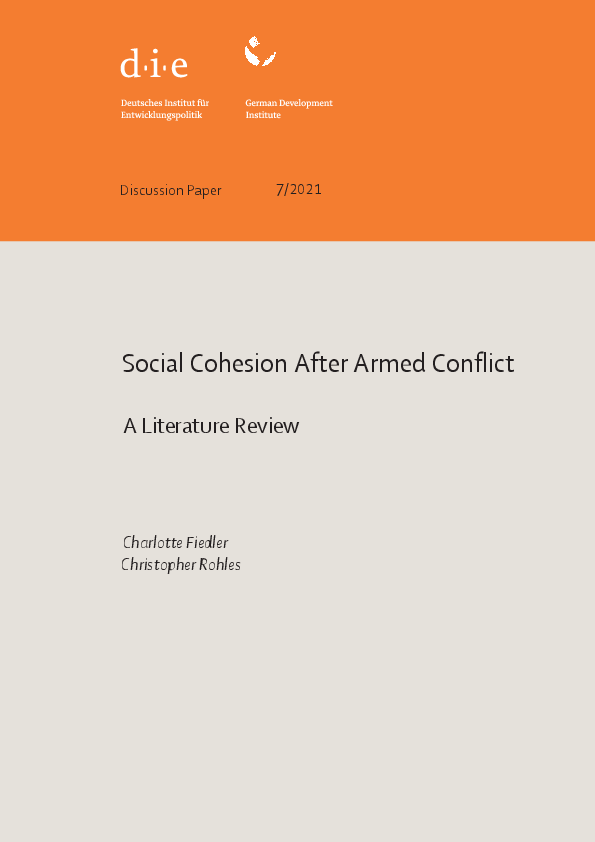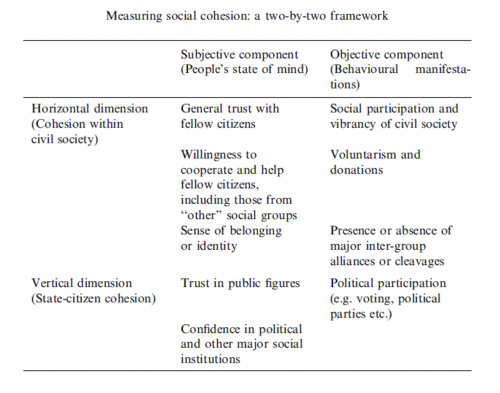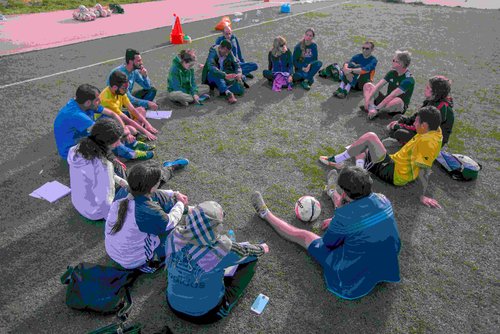Social cohesion after armed conflict: a literature review
Key facts
Identity/feeling of belonging
Participation
Orientation towards the common good
Cooperation
Europe and Central Asia
East Asia and Pacific
Middle East and North Africa
South Asia
Political institutions & governance
Summary
How does armed conflict affect social cohesion, that is, the social fabric of societies? This question is central if we want to understand better why some countries experience repeated cycles of violence. It is also a crucial question for the design of peacebuilding interventions. In recent years, considerable scientific work has been put into studying the social legacies of armed conflict. This literature review brings these academic studies together in a novel way.
In this discussion paper we conduct an extensive review of the empirical academic literature on how armed conflict affects social cohesion. We take a holistic perspective and analyse each of the three constituent elements of social cohesion – trust, cooperation and identity – in detail and along both a vertical (state-society relations) and a horizontal (interpersonal and intergroup relations) dimension. Regarding conflict, the focus lies on intrastate conflict and civil war, but the review also includes the few studies that focus on armed conflict between states or groups (interstate and non-state conflict). Overall, this review brings together insights from 39 published, peer-reviewed, empirical studies, most of which analyse the effects of conflict based on comprehensive survey data or behavioural experiments. Strengths and shortcomings are discussed and future avenues for research are identified.
Contrary to the initial optimism of the potentially positive legacies of armed conflict expressed by some scholars, our main finding holds that the literature by now mainly points towards such conflict harming social cohesion. Most clearly, there is quite a large body of literature showing that social trust is negatively affected by experience of violence. Research on political trust and social identities is still nascent but currently also points towards negative effects. The literature on cooperation is more mixed with studies finding both support for an increase or a decrease in cooperative behaviour. However, several (and particularly newer) studies demonstrate that an increase in cooperation can often be explained by prosocial behaviour towards the in-group but not the out-group, calling into question whether this should be interpreted positively for social cohesion overall. Political participation does, however, seem to be one aspect of social cohesion in which effects of the “post-traumatic growth” mechanism can indeed be traced in several contexts.




